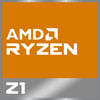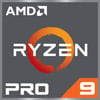
Intel Core i7-13700T Benchmark, Test and specs
Last updated:
The Intel Core i7-13700T has 16 cores with 24 threads and is based on the 13. gen of the Intel Core i7 series. The processor uses a mainboard with the LGA 1700 socket and was released in Q1/2023. The Intel Core i7-13700T scores 1,916 points in the Geekbench 5 single-core benchmark. In the Geekbench 5 multi-core benchmark, the result is 11,611 points.

| Name: | Intel Core i7-13700T |
|---|---|
| Family: | Intel Core i7 (298) |
| CPU group: | Intel Core i 13000 (17) |
| Architecture: | Raptor Lake S |
| Segment: | Desktop / Server |
| Generation: | 13 |
| Predecessor: | Intel Core i7-12700T |
| Successor: | Intel Core i7-14700T |
CPU Cores and Base Frequency
The Intel Core i7-13700T has 16 CPU cores and can calculate 24 threads in parallel. The clock frequency of the Intel Core i7-13700T is 1.40 GHz (4.90 GHz). The number of CPU cores greatly affects the speed of the processor and is an important performance indicator.
| CPU Cores / Threads: | 16 / 24 |
|---|---|
| Core architecture: | hybrid (big.LITTLE) |
| A-Core: | 8x Raptor Cove |
| B-Core: | 8x Gracemont |
| Hyperthreading / SMT: | Yes |
|---|---|
| Overclocking: | No |
| A-Core Frequency: | 1.40 GHz (4.90 GHz) |
| B-Core Frequency: | 1.00 GHz (3.60 GHz) |
Internal Graphics
The Intel Core i7-13700T has integrated graphics, called iGPU for short. Specifically, the Intel Core i7-13700T uses the Intel UHD Graphics 770, which has 256 texture shaders and 32 execution units. The iGPU uses the system's main memory as graphics memory and sits on the processor's die.
| GPU name: | Intel UHD Graphics 770 |
|---|---|
| GPU frequency: | 0.30 GHz |
| GPU (Turbo): | 1.60 GHz |
| Compute units: | 32 |
| Shader: | 256 |
| Hardware Raytracing: | No |
| Release date: | Q4/2021 |
| Max. displays: | 3 |
|---|---|
| Generation: | 11 |
| Direct X: | 12 |
| Technology: | 10 nm |
| Max. GPU Memory: | 64 GB |
| Frame Generation: | No |
Hardware codec support
A photo or video codec that is accelerated in hardware can greatly accelerate the working speed of a processor and extend the battery life of notebooks or smartphones when playing videos.
| h265 / HEVC (8 bit): | Decode / Encode |
|---|---|
| h265 / HEVC (10 bit): | Decode / Encode |
| h264: | Decode / Encode |
| VP8: | Decode / Encode |
| VP9: | Decode / Encode |
| AV1: | Decode |
|---|---|
| AVC: | Decode / Encode |
| VC-1: | Decode |
| JPEG: | Decode / Encode |
Memory & PCIeThe processor can use up to 192 GB memory in 2 (Dual Channel) memory channels. The maximum memory bandwidth is 89.6 GB/s. The memory type as well as the amount of memory can greatly affect the speed of the system. |
|
| Memory type: | Memory bandwidth: |
|---|---|
| DDR5-5600 DDR4-3200 | 89.6 GB/s 51.2 GB/s |
| Max. Memory: | 192 GB |
| Memory channels: | 2 (Dual Channel) |
| ECC: | Yes |
| PCIe: | 5.0 x 20 |
| PCIe Bandwidth: | 78.8 GB/s |
Thermal ManagementThe thermal design power (TDP for short) of the processor is 35 W. The TDP specifies the necessary cooling solution that is required to cool the processor sufficiently. The TDP usually gives a rough idea of the actual power consumption of the CPU. |
|
|---|---|
| TDP (PL1 / PBP): | 35 W |
| TDP (PL2): | 106 W |
| TDP up: | -- |
| TDP down: | -- |
| Tjunction max.: | 100 °C |
Technical details
The Intel Core i7-13700T is made in 10 nm. The smaller the manufacturing process of a CPU, the more modern and energy-efficient it is. Overall, the processor has 54.00 MB cache. A large cache can greatly speed up the processor's speed in some cases such as games.
| Technology: | 10 nm |
|---|---|
| Chip design: | Monolithic |
| Socket: | LGA 1700 |
| L2-Cache: | 24.00 MB |
| L3-Cache: | 30.00 MB |
| AES-NI: | Yes |
| Operating systems: | Windows 10, Windows 11, Linux |
| Virtualization: | VT-x, VT-x EPT, VT-d |
|---|---|
| Instruction set (ISA): | x86-64 (64 bit) |
| ISA extensions: | SSE4.1, SSE4.2, AVX2, AVX2+ |
| Release date: | Q1/2023 |
| Release price: | 384 $ |
| Part Number: | -- |
| Documents: | Technical data sheet |
Rate this processor
Benchmark results

The benchmark results for the Intel Core i7-13700T have been carefully checked by us. We only publish benchmark results that have been created by us or that have been submitted by a visitor and then checked by a team member. All results are based on and fullfill our benchmark guidelines.
Screenshots:
Screenshots:
Cinebench 2024 (Single-Core)
The Cinebench 2024 benchmark is based on the Redshift rendering engine, which is also used in Maxon's 3D program Cinema 4D. The benchmark runs are each 10 minutes long to test whether the processor is limited by its heat generation.

|
Apple M1
8C 8T @ 3.20 GHz |
||

|
Apple M1 Max (24-GPU)
10C 10T @ 3.20 GHz |
||

|
Apple M1 Max (32-GPU)
10C 10T @ 3.20 GHz |
||
|
|
Intel Core i7-13700T
16C 24T @ 4.90 GHz |
||

|
Intel Core i5-14500HX
14C 20T @ 4.90 GHz |
||

|
AMD Ryzen 7 7700
8C 16T @ 5.30 GHz |
||

|
AMD Ryzen 7 7745HX
8C 16T @ 5.10 GHz |
||
Cinebench 2024 (Multi-Core)
The Multi-Core test of the Cinebench 2024 benchmark uses all cpu cores to render using the Redshift rendering engine, which is also used in Maxons Cinema 4D. The benchmark run is 10 minutes long to test whether the processor is limited by its heat generation.

|
Intel Core i7-12700K
12C 20T @ 5.00 GHz |
||

|
Intel Xeon W-2295
18C 36T @ 4.80 GHz |
||

|
AMD Ryzen 7 7800X3D
8C 16T @ 5.00 GHz |
||
|
|
Intel Core i7-13700T
16C 24T @ 4.90 GHz |
||

|
AMD Ryzen 7 7700X
8C 16T @ 5.40 GHz |
||

|
AMD Ryzen 9 3900XT
12C 24T @ 4.70 GHz |
||

|
AMD Ryzen 9 3900X
12C 24T @ 4.60 GHz |
||
Geekbench 5, 64bit (Single-Core)
Geekbench 5 is a cross plattform benchmark that heavily uses the systems memory. A fast memory will push the result a lot. The single-core test only uses one CPU core, the amount of cores or hyperthreading ability doesn't count.

|
AMD Ryzen 7 8840U
8C 16T @ 5.10 GHz |
||

|
AMD Ryzen 7 PRO 8840U
8C 16T @ 5.10 GHz |
||

|
AMD Ryzen Z1 Extreme
8C 16T @ 5.10 GHz |
||
|
|
Intel Core i7-13700T
16C 24T @ 4.90 GHz |
||

|
Intel Xeon E-2378G
8C 16T @ 5.10 GHz |
||

|
Intel Core i7-13800HRE
14C 20T @ 5.00 GHz |
||

|
Intel Core i7-13700TE
16C 24T @ 4.80 GHz |
||
Geekbench 5, 64bit (Multi-Core)
Geekbench 5 is a cross plattform benchmark that heavily uses the systems memory. A fast memory will push the result a lot. The multi-core test involves all CPU cores and taks a big advantage of hyperthreading.

|
Intel Core i9-11900K
8C 16T @ 4.80 GHz |
||

|
Intel Xeon Gold 6132
14C 28T @ 2.90 GHz |
||

|
Intel Xeon Gold 6146
12C 24T @ 3.60 GHz |
||
|
|
Intel Core i7-13700T
16C 24T @ 4.20 GHz |
||

|
AMD Ryzen 9 PRO 8945HS
8C 16T @ 4.00 GHz |
||

|
AMD Ryzen 9 8945H
8C 16T @ 4.00 GHz |
||

|
AMD Ryzen 9 8945HS
8C 16T @ 4.00 GHz |
||
Geekbench 6 (Single-Core)
Geekbench 6 is a benchmark for modern computers, notebooks and smartphones. What is new is an optimized utilization of newer CPU architectures, e.g. based on the big.LITTLE concept and combining CPU cores of different sizes. The single-core benchmark only evaluates the performance of the fastest CPU core, the number of CPU cores in a processor is irrelevant here.

|
Intel Core i5-14400
10C 16T @ 4.70 GHz |
||

|
Intel Core i5-14400F
10C 16T @ 4.70 GHz |
||

|
Intel Core i7-13620H
10C 16T @ 4.90 GHz |
||
|
|
Intel Core i7-13700T
16C 24T @ 4.90 GHz |
||

|
Intel Core i7-1370P
14C 20T @ 5.20 GHz |
||

|
Intel Core i7-13700HX
16C 24T @ 5.00 GHz |
||

|
Intel Core i7-13700H
14C 20T @ 5.00 GHz |
||
Geekbench 6 (Multi-Core)
Geekbench 6 is a benchmark for modern computers, notebooks and smartphones. What is new is an optimized utilization of newer CPU architectures, e.g. based on the big.LITTLE concept and combining CPU cores of different sizes. The multi-core benchmark evaluates the performance of all of the processor's CPU cores. Virtual thread improvements such as AMD SMT or Intel's Hyper-Threading have a positive impact on the benchmark result.

|
AMD EPYC 7313
16C 32T @ 3.40 GHz |
||

|
Qualcomm Snapdragon X Elite
12C 12T @ 3.80 GHzNot verified |
||

|
AMD Ryzen 7 7700X
8C 16T @ 5.20 GHz |
||
|
|
Intel Core i7-13700T
16C 24T @ 4.20 GHz |
||

|
AMD EPYC 7643
48C 96T @ 3.40 GHz |
||

|
Intel Core i5-14500
14C 20T @ 4.80 GHz |
||

|
Intel Core i5-13600
14C 20T @ 4.40 GHz |
||
iGPU - FP32 Performance (Single-precision GFLOPS)
The theoretical computing performance of the internal graphics unit of the processor with simple accuracy (32 bit) in GFLOPS. GFLOPS indicates how many billion floating point operations the iGPU can perform per second.

|
Intel Core i7-4950HQ
Intel Iris Pro Graphics 5200 @ 1.30 GHz |
||

|
Intel Core i7-4960HQ
Intel Iris Pro Graphics 5200 @ 1.30 GHz |
||

|
Intel Core i7-4980HQ
Intel Iris Pro Graphics 5200 @ 1.30 GHz |
||
|
|
Intel Core i7-13700T
Intel UHD Graphics 770 @ 1.60 GHz |
||

|
Intel Core i7-14700T
Intel UHD Graphics 770 @ 1.60 GHz |
||

|
Intel Core i7-14700
Intel UHD Graphics 770 @ 1.60 GHz |
||

|
Intel Core i7-14700K
Intel UHD Graphics 770 @ 1.60 GHz |
||
Estimated results for PassMark CPU Mark
Some of the CPUs listed below have been benchmarked by CPU-monkey. However the majority of CPUs have not been tested and the results have been estimated by a CPU-monkey’s secret proprietary formula. As such they do not accurately reflect the actual Passmark CPU mark values and are not endorsed by PassMark Software Pty Ltd.

|
AMD Ryzen 9 7940HS
8C 16T @ 4.00 GHz |
||

|
Intel Xeon W-2295
18C 36T @ 3.80 GHz |
||

|
AMD Ryzen 9 3900
12C 24T @ 3.10 GHz |
||
|
|
Intel Core i7-13700T
16C 24T @ 4.20 GHz |
||

|
Intel Xeon Gold 6246R
16C 32T @ 3.60 GHz |
||

|
Intel Core i9-9960X
16C 32T @ 4.10 GHz |
||

|
Intel Core i9-7980XE
18C 36T @ 3.50 GHz |
||
Benchmarks

Cinebench 2024 (SC)
272 entries
272 entries

Cinebench 2024 (MC)
271 entries
271 entries

Geekbench 5 (SC)
2,488 entries
2,488 entries

Geekbench 5 (MC)
2,461 entries
2,461 entries

Geekbench 6 (SC)
1,755 entries
1,755 entries

Geekbench 6 (MC)
1,703 entries
1,703 entries

FP32 SP (iGPU)
2,039 entries
2,039 entries

3DMark Timespy (iGPU)
516 entries
516 entries

PassMark CPU-Mark
2,392 entries
2,392 entries
Description of the processor
The Intel Core i7-13700T is a processor from Intels 13th generation Core i7 series. It was launched in the first quarter of 2023 and is based on the Raptor Lake S architecture. It is manufactured using the 10-nanometer process, is based on a monolithic chip design and can be installed on all mainboards with the LGA 1700 socket. The processor can be operated under both Windows and Linux.The processor has 16 physical cores and is built in a hybrid big.LITTLE structure. It consists of 8 performance cores codenamed Raptor Cove that support Hyperthreading. The base clock of the performance cores is 1.40 gigahertz and the maximum turbo clock is 4.90 gigahertz. The performance cores are joined by 8 efficiency cores, which clock at 1.00 gigahertz and have a maximum turbo clock of 3.60 gigahertz. Thus, a total of 24 computing threads are available to the Intel Core i7-13700T.
The internal graphics unit called Intel UHD Graphics 770 is integrated in the processor. This iGPU was released in the fourth quarter of 2021 and, like the processor, is manufactured using the 10-nanometer process. The clock frequency of the graphics unit is between 300 megahertz (base clock) and 1.60 gigahertz (maximum turbo clock). The Intel UHD Graphics 770 has 32 execution units and 256 shaders, with which it achieves an FP32 computing power of 820 GigaFLOPS. The iGPU does not have its own main memory, but uses that of the system.
DDR4-3200 and DDR5-5600 modules are officially supported for main memory (RAM). The Intel Core i7-13700T has 2 memory channels with which it can achieve a bandwidth of up to 89.6 GB/s. A total of up to 128 gigabytes of RAM can be operated with the processor and it also supports RAM with automatic error correction (ECC RAM).
Popular comparisons
back to index




